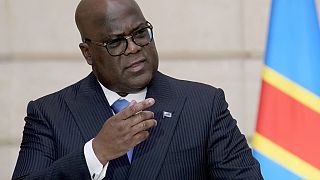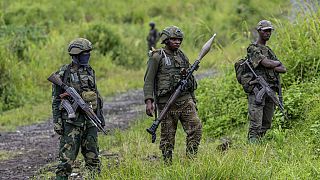Democratic Republic Of Congo
After one year of being place under a state of siege, residents of Ituri and North Kivu in the east of the Democratic Republic of Congo say the move has not yielded the envisaged results.
This was to secure and put an end to the hundred or so armed groups that had been sowing terror in the region for more than 25 years.
Since then, the Congolese army, Ugandan forces, and the UN’s largest peacekeeping mission, MONUSCO, have all been playing their part in a big push against the region’s armed groups.
One year on from the introduction of this exceptional security regime, which gives full powers to the military, the population and civil society of North Kivu and Ituri are still waiting for the results.
The état de siège has been prolonged no fewer than 22 times. But violence continues to worsen: abductions have more than doubled and destruction of property has trebled over the last year, according to the Kivu Security Tracker project coordinated by Human Rights Watch.
The president of the republic has decided to hold a roundtable conference to decide on the future of the state of siege in the provinces .
The roundtable called for by President Tshisekedi has been occasioned by the fact that a majority of Congolese feel the state of siege, which is an extreme measure taken to curb violence in the two provinces of Ituri and North Kivu, has not yielded the envisaged results.












01:00
DRC: M23 rebels seize new town near border with Uganda as talks drag
Go to video
DR Congo Military helicopter crash kills three foreign crew members
01:59
Former militia members seek peace and reintegration in DRC
01:12
Ongoing violence delays U.N. peacekeepers' departure from DRC scheduled for December
01:09
Congolese army announce they have taken back control of DRC's Kalembe, M23 rebels deny
01:09
Fighting erupts in eastern DRC marking an end to ceasefire; M23 take control of Kalembe